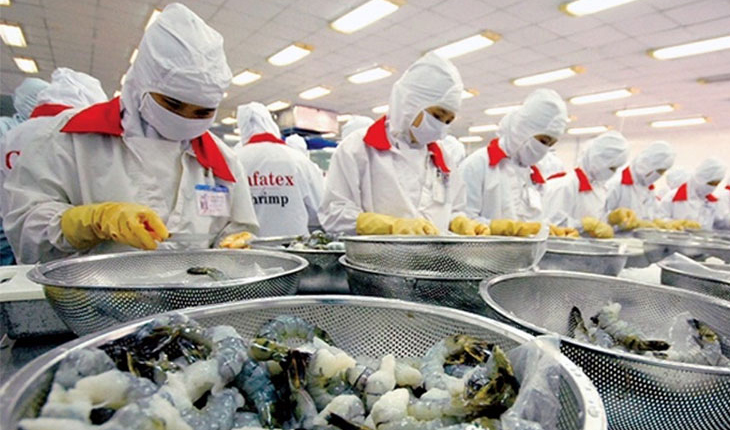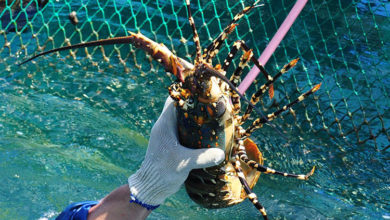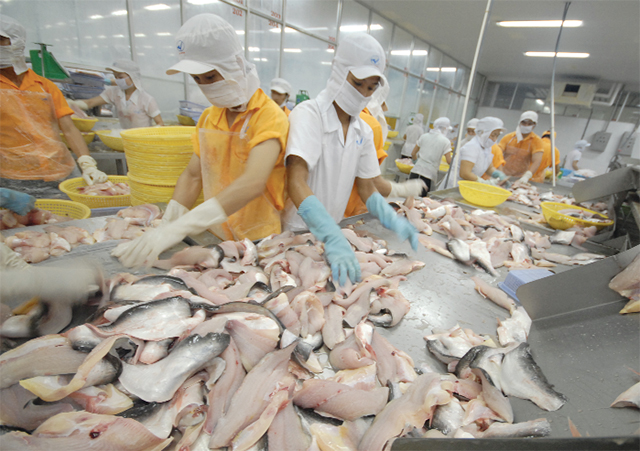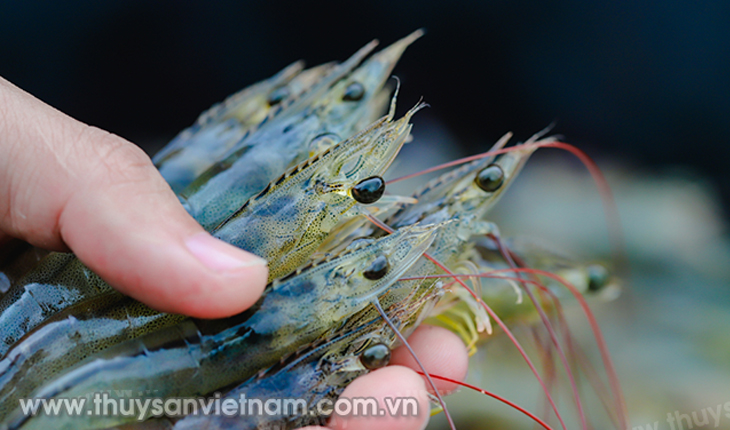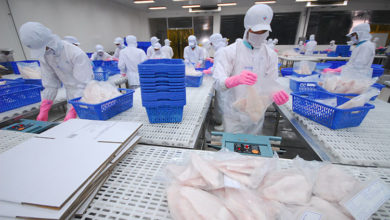Seafood processing and exporting businesses are ‘hungry’ for raw materials
Despite the existence of cold storage to keep raw materials for the winter months, seafood processing and exporting firms in Bình Thuận province are still at risk of being canceled by clients who will hunt for markets in other companies if their operations are not ready. The fish business is still sluggish to return items.
There will be a scarcity of supplies
Never before has the fish business encountered such a slew of challenges. The fact that the province’s two major fishing ports, La Gi and Phan Thiết, were temporarily closed due to the epidemic for an extended period of time, led the supply of raw materials to come to a halt. Thousands of boats must remain onshore, and the production is not as projected. Not only that but other coastal provinces and cities became entangled with Directive 16 during the male fish season, making transportation and consumption of aquatic items considerably more difficult. According to seafood processing and exporting enterprises in the province, the supply of raw materials has reduced by half since the pandemic began. There is a scarcity of raw resources in the province, thus many businesses must purchase raw materials from neighboring provinces and cities such as Ninh Thuận, Vũng Tàu, Nha Trang… at growing expenses but also with great difficulty. According to Ms. Tran Nhu Linh, in charge of quality management at HaiWang Seafood Co., Ltd., the firm now has four cold storage at Phan Thiết Fishing Port with a capacity of 350 tons and one cold storage in Phan Thiết Industrial Park with a capacity of 1,000 tons. However, during this year’s male fish season, we only imported 2-3 tons per day, a 50% decrease from the previous year. It is also predicted that there would be a lack of fresh materials for export orders in the last three months of the year. The firm is now working with a partner to lengthen the time to supply orders. Although many consumers sympathize, certain challenging partners will not tolerate late contracts. As a result, the firm is attempting to return more than 400 individuals to work in order to react to orders in a timely manner after more than two weeks of sustaining operations under the “three on-site” option.
Not only is the source of exploited seafood in limited supply, but aquaculture growers are also hesitant to stock again for fear of product congestion, and seafood prices are falling by 30 to 50 percent. The perplexing contradiction is that, although farmers are unable to sell their produce, firms are “hungry” for raw resources. To ensure that seafood orders are met in line with the contract negotiated at the start of the year, seafood processing firms in the province must endeavor to be flexible in their approach to both producing and preventing outbreaks. Recently, when the epidemic began at Phan Thiết Fishing Port, a few seafood processing enterprises with positive staff were compelled to halt working for an extended period of time, resulting in contracts being deemed canceled. Only 12 firms and establishments/522 personnel are eligible to make “3 on the spot” during the port’s temporary shutdown, out of 97 enterprises, major and small manufacturing facilities functioning in Phan Thiết Fishing Port.
Orders at risk of being lost
If there is no outbreak from the fishing port, 500 workers of Hainan Co., Ltd (the facility is located in Phan Thiết Fishing Port) may function at full capacity, meeting around 20 orders of octopus, squid of various types sent to Europe, the United States, and Japan in one month… However, when the epidemic struck and the Phan Thiết fishing port closed, the firm was forced to continue manufacturing with the “three on-site” option for 192 workers. Mr. Nguyen Hoang Phuong Phu, the firm’s manager, stated, “In addition to encouraging and motivating workers to eat three meals a day, milk, and fruit regimens inside meals, the company also supports an additional 100,000 VND/day/worker to encourage and inspire workers to work safely.” As a result, the cost of keeping “three on-site” has grown by 100 percent compared to previously, yet only 5 orders can be filled in 2 weeks. Although the firm has written to its partners to relocate and prolong the delivery time, the danger of losing orders is quite high in this circumstance if production is not maintained consistently.”
According to the province’s seafood processing and exporting enterprises, if they lose clients or markets, it would take 3-5 years to recover, and even if they lose permanently, they cannot be recovered. As a result, the cost of keeping “three on-site” has grown by 100 percent compared to previously, yet only 5 orders can be filled in 2 weeks. Although the firm has written to its partners to relocate and prolong the delivery time, the danger of losing orders is quite high in this circumstance if production is not maintained consistently.”
According to the province’s seafood processing and exporting enterprises, if they lose clients or markets, it would take 3-5 years to recover, and even if they lose permanently, they cannot be recovered. Furthermore, in order to maintain stable seafood production, the Department of Agriculture and Rural Development has requested that the Ministry of Agriculture and Rural Development consult with the Ministry of Health in order to quickly allocate the amount of Covid-19 vaccine to fishermen, factory workers, and seafood processing enterprises. The Department of Agriculture and Rural Development, in particular, proposed that the Ministry of Agriculture and Rural Development consult with the Government in order to direct relevant ministries and branches to quickly implement the contents of Government Resolution 105, dated September 9, 2021, on support for businesses, cooperatives, and business households in the context of the Covid-19 epidemic. As a result of this resolution, there are several procedures and policies in place to assist and encourage production recovery. As a result, it will alleviate some of the challenges for institutions and enterprises, particularly in the last months of the year when the source of raw materials is required to ensure that firms do not breach contracts.
Ms. Nguyen Thi Kim Tuyen – Muoi Tuyen Co., Ltd. Director: This year is regarded as the most challenging in history for enterprises that buy and process seafood. Because of the outbreak at Phan Thiết Fishing Port, we were obliged to carry out the “three on-site” work, which affected the company’s production by the source of raw materials (scad fish, tilapia, squid…) 50-60% compared to with last year. Particularly for tuna products supplied to partners in canning, the company’s decline was 80%. Every year, the firm can acquire tuna resources from all throughout the country and offer its clients approximately 3,000 tons of tuna. This year alone, the two major factories in Long An specialized in canned tuna for export were shuttered owing to the outbreak, and many provinces and towns were embroiled in Directive 16, so we were significantly impacted. The last three months of the year are called low season; there is no longer a source of commodities to supply to export processing partners, and domestic enterprises can only supply with very limited output. We function as brokers for major corporations that import aquatic items and then distribute them to partners in order to continue production for outsourcing and protect the safety of workers. Despite numerous problems, we consider ourselves to be lucky than many others because the firm is still in operation and the personnel is safe…”


